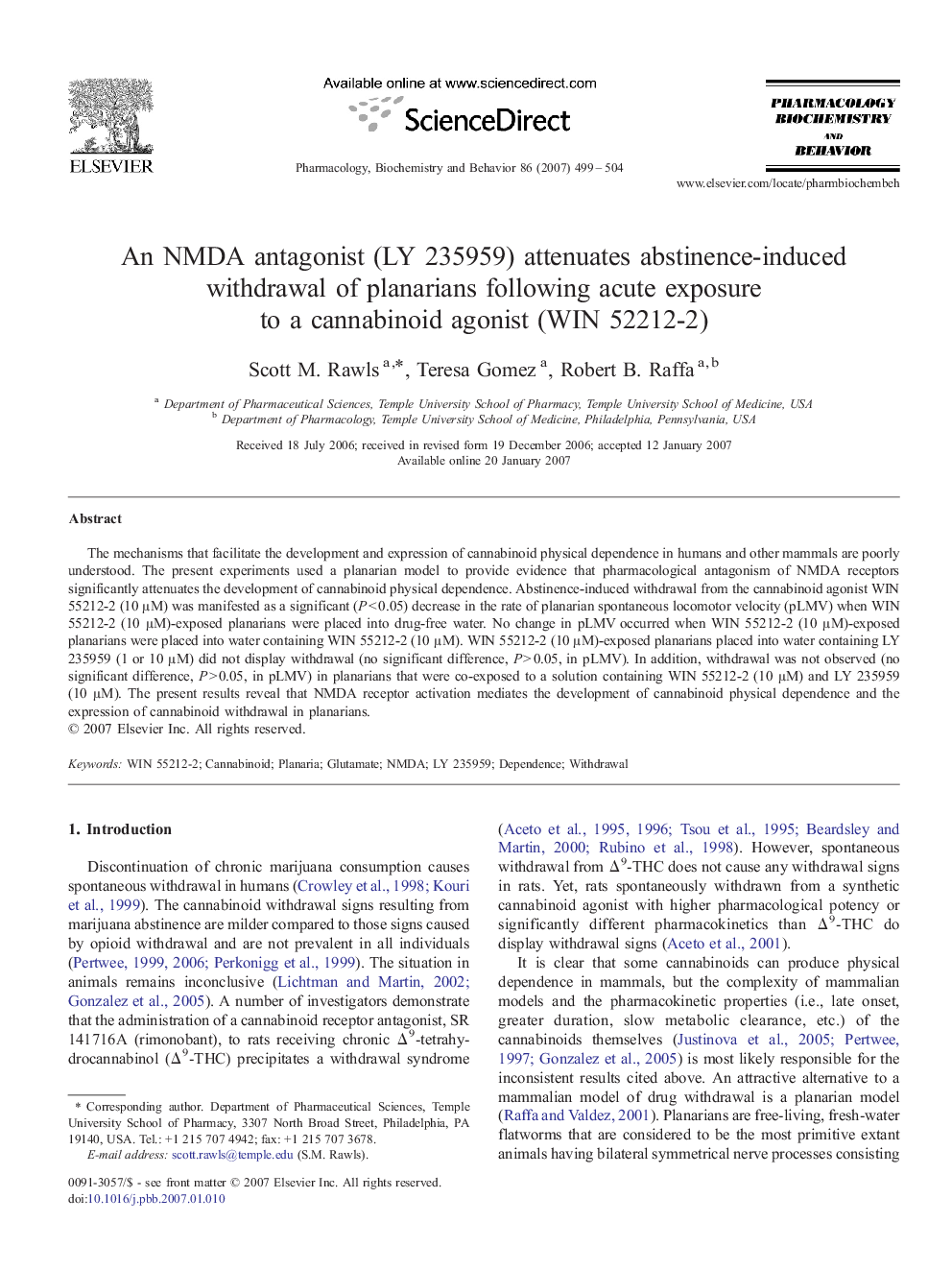| کد مقاله | کد نشریه | سال انتشار | مقاله انگلیسی | نسخه تمام متن |
|---|---|---|---|---|
| 2014067 | 1067142 | 2007 | 6 صفحه PDF | دانلود رایگان |

The mechanisms that facilitate the development and expression of cannabinoid physical dependence in humans and other mammals are poorly understood. The present experiments used a planarian model to provide evidence that pharmacological antagonism of NMDA receptors significantly attenuates the development of cannabinoid physical dependence. Abstinence-induced withdrawal from the cannabinoid agonist WIN 55212-2 (10 μM) was manifested as a significant (P < 0.05) decrease in the rate of planarian spontaneous locomotor velocity (pLMV) when WIN 55212-2 (10 μM)-exposed planarians were placed into drug-free water. No change in pLMV occurred when WIN 55212-2 (10 μM)-exposed planarians were placed into water containing WIN 55212-2 (10 μM). WIN 55212-2 (10 μM)-exposed planarians placed into water containing LY 235959 (1 or 10 μM) did not display withdrawal (no significant difference, P > 0.05, in pLMV). In addition, withdrawal was not observed (no significant difference, P > 0.05, in pLMV) in planarians that were co-exposed to a solution containing WIN 55212-2 (10 μM) and LY 235959 (10 μM). The present results reveal that NMDA receptor activation mediates the development of cannabinoid physical dependence and the expression of cannabinoid withdrawal in planarians.
Journal: Pharmacology Biochemistry and Behavior - Volume 86, Issue 3, March 2007, Pages 499–504